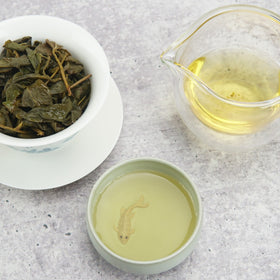Lower Darjeeling tea crop feared due to erratic weather
http://www.thehindu.com/business/Industry/article697233.ece
Production of Darjeeling tea is set to be lower this year with erratic weather conditions cutting into the crop-size of one of India 's best-known commodities. The Darjeeling tea industry, which reported a 12 per cent lower crop between January and August this year may end up with a production of less than 8 million kg.
Tea Board Chairman Basudeb Banerjee confirmed to The Hindu that the Darjeeling crop would be down this year. Exporters, who had entered into forward contracts, are now having difficulty honouring them due to supply constraints.
Besides adverse weather conditions, the poor-productivity of the bushes has also contributed to the lower crop. The Darjeeling tea crop has been dwindling for long now, averaging at around 9 million kg annually. The Tea Board now carries out a trade chain audit necessary for the geographical indication (GI) protection that the premium tea now enjoys in the world markets. This has checked adulteration.
Darjeeling Tea Association Chairman Sanjay Bansal said this year (2010) would be one of the lowest crops in the last 40 years. The problem was triggered by a severe drought which started in October 2009 and continued till April 2010, when tea bushes got defoliated and leaves dropped off. The severity caught even senior planters by surprise.
As a result of this, the ‘first flush' tea, which comes around mid-May and contributes about 20 per cent of the crop, was down by about 35 per cent.
This is also the tea that fetches the best prices in the international market. The crop was lower in the ‘second flush' season too between June and July during which 30 per cent of the crop is harvested.
The two prime tea-seasons knocked off nearly 10 per cent of the output. The rains, which were scanty till June, started pouring excessively from July, with August getting just three days of sunshine. There are 87 tea estates in Darjeeling all of which are running now.
However, the weather was not the only reason behind the crop loss. Shifting to organic methods of production has also led to lesser crop. During 2010, as many as 35 Darjeeling gardens changed hands with some crops being lost in the transformation process.
While over the years, India has lost its primacy in the world tea market to Kenya, Sri Lanka and China, the demand for Darjeeling tea rules steady as its unique muscatel flavour cannot be replicated. Mr Bansal said prices had been high but the companies were witnessing drop in revenues due to supply-shortages.
The need of the hour is to go in for a massive replantation and rejuvenation drive as the average age of a tea-bush in Darjeeling is 80 years and the plants have lived their life. However the Special Purpose Tea Fund has not motivated the industry to take up replantation projects as the industry says that it needs a special package for the region.


Leave a comment